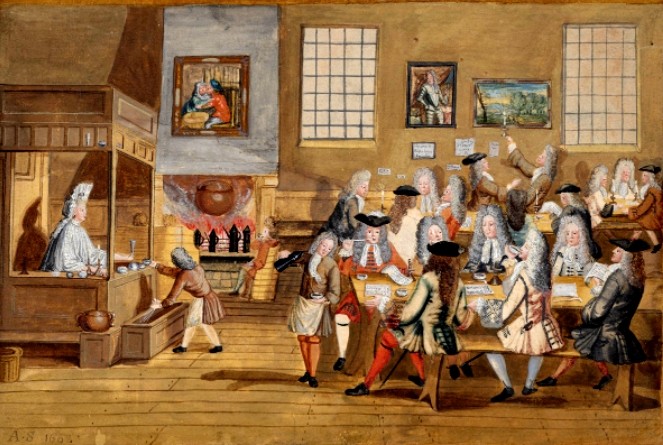
A painting of a coffee shop from the 1700s. (Photo Courtesy: Owned by the trustees of the British Museum)
The Birth of Coffee Culture in India
During British colonial rule, coffee houses became the favored gathering spots for the British intelligentsia. These establishments were exclusive venues where conversations flourished over cups of coffee and snacks. However, these coffee houses were off-limits to the Indian populace. The seeds of resistance were sown as Indians began to push for their own spaces. In 1936, the Indian Coffee Board established the first Indian Coffee House, opening doors to Indian patrons and marking the beginning of a new era.
Indian Coffee Houses: Cradles of Revolution
The Indian Coffee House quickly became a hub for the Indian intelligentsia, revolutionaries, and educationists. These coffee houses were not just places to enjoy coffee but were vibrant centers for intellectual discourse and revolutionary ideas. The freedom struggle and various social movements found a nurturing ground within these walls. Ideas were exchanged, plans were hatched, and many revolutionary movements took shape over cups of coffee in the Indian Coffee Houses.
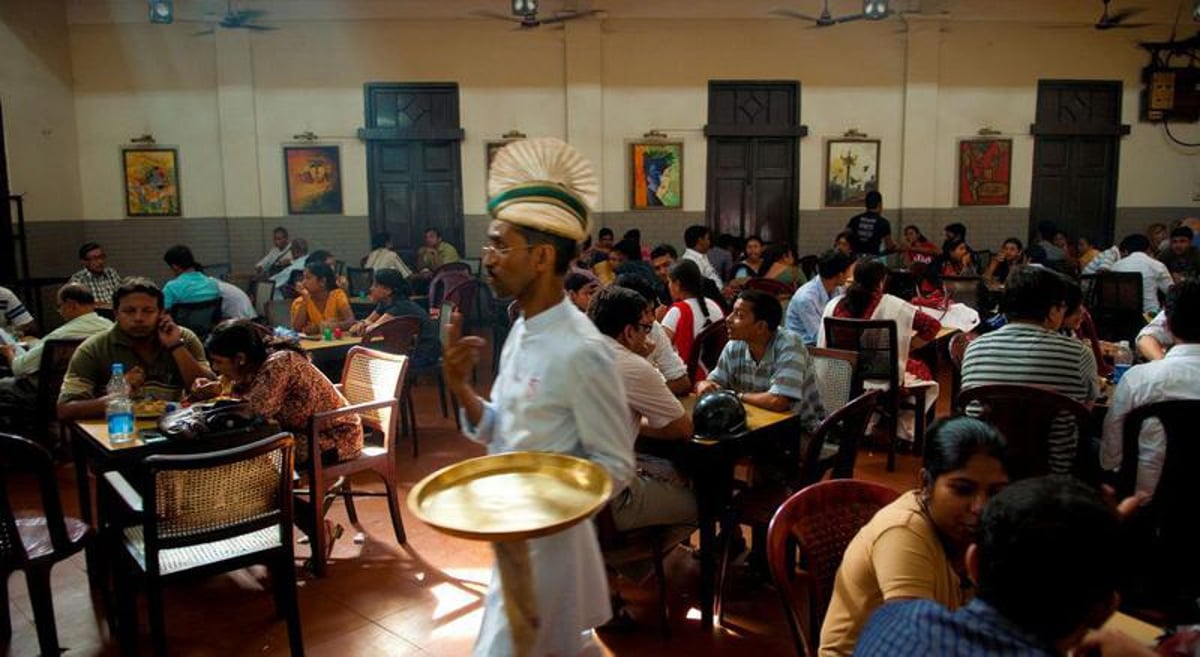
The Turning Point: Workers’ Cooperative Movement
In 1950, the Indian Coffee Board decided to shut down the Indian Coffee House chain, which was met with widespread discontent among the workers. The communist leader A.K. Gopalan delivered fiery speeches that ignited the workers' spirits, leading to a revolt against the closure. The collective effort and determination of the workers forced the Coffee Board to reconsider its decision. Consequently, the operations of the Indian Coffee Houses were handed over to the Indian Coffee Workers' Cooperative Societies. This transition marked a significant turning point, as the workers themselves took charge, ensuring the survival and prosperity of the Indian Coffee Houses.
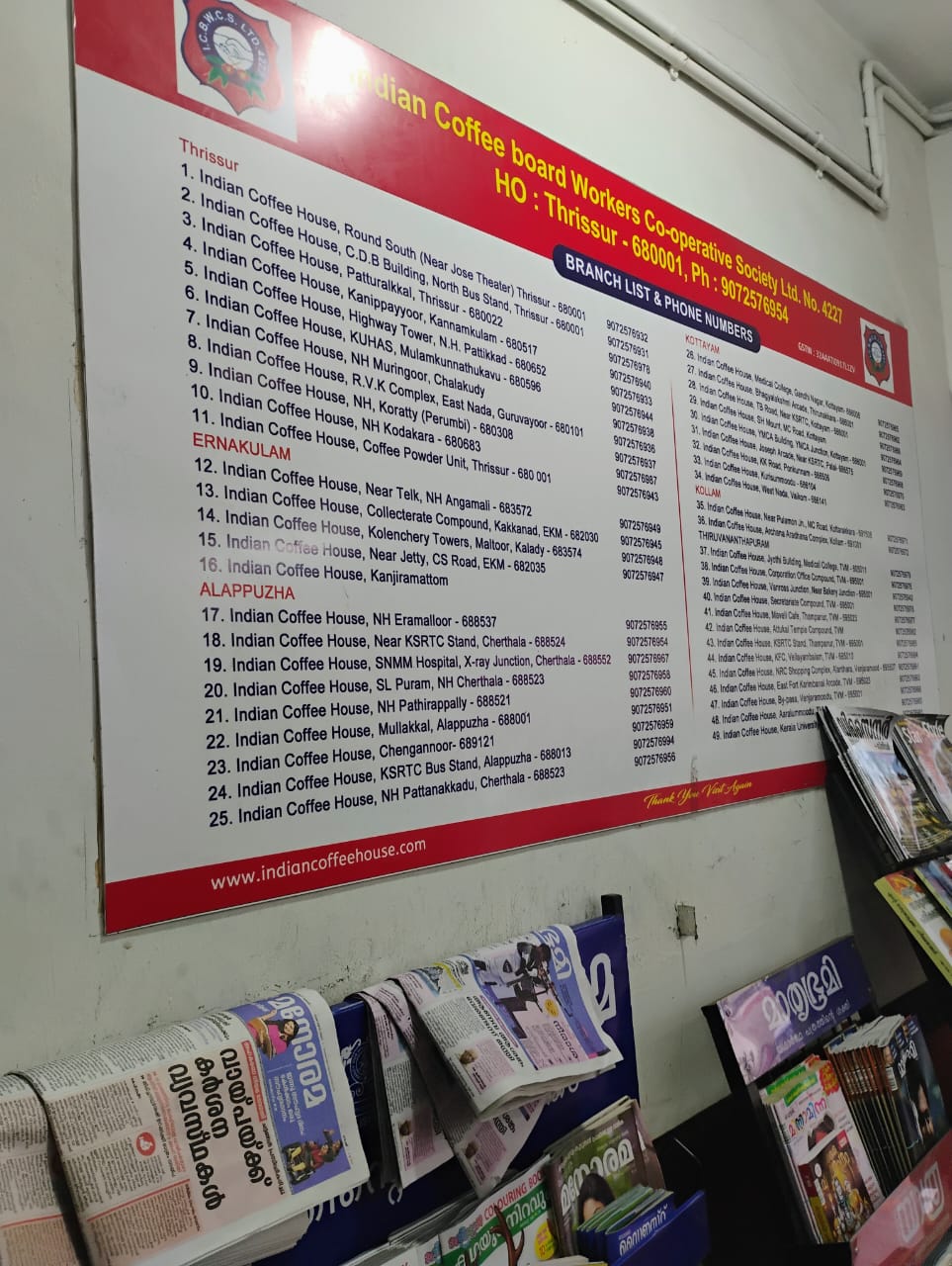
The Cooperative Model: A Success Story
The cooperative model proved to be a resounding success. The Indian Coffee Houses, now run by the workers, continued to thrive. This model not only preserved jobs but also instilled a sense of ownership and pride among the workers. The cooperative structure fostered a community spirit, with decisions made collectively and profits shared among the members. This unique approach has been instrumental in sustaining the Indian Coffee Houses through various challenges over the decades.
Cultural and Intellectual Hubs
The Indian Coffee Houses evolved into cultural and intellectual hubs, particularly in cities like Kolkata, Delhi, and Mumbai. They became melting pots of ideas where writers, artists, politicians, and thinkers congregated. The ambiance of these coffee houses, characterized by their retro interiors and simple furniture, created an environment conducive to free thought and lively discussions. The aroma of freshly brewed coffee added to the charm, making these spaces integral to the cultural fabric of the cities they were in.
(Food for thought: A Cup of Coffee tells you to slow down. Read here to know more how to slow down while in vacation)
Iconic Menu and Nostalgic Charm
The menu of the Indian Coffee House, with its affordable prices and classic South Indian dishes, has remained largely unchanged over the years. Items like filter coffee, masala dosa, vada, and cutlets have become synonymous with the Indian Coffee House experience. The nostalgic charm of these coffee houses, with their uniformed staff and vintage decor, transports visitors to a bygone era, evoking a sense of timelessness.
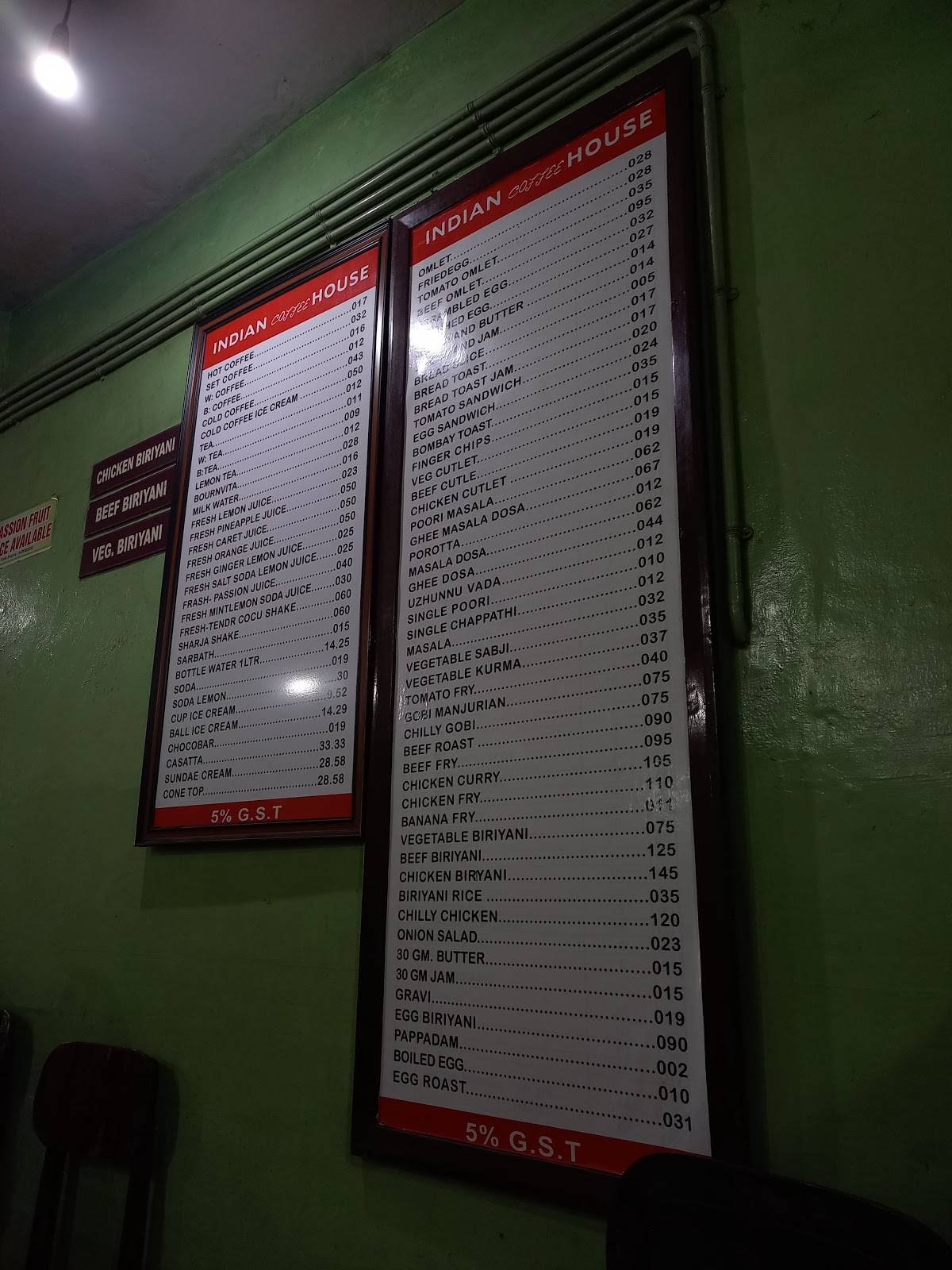
Indian Coffee House menu remains just the same. (Photo Courtesy: restaurant-guru.in)
Challenges and Resilience
Despite facing numerous challenges, including competition from modern cafes and financial struggles, the Indian Coffee House has shown remarkable resilience. The cooperative model has played a crucial role in its survival, allowing it to adapt and evolve while staying true to its roots. The loyalty of its patrons, who value the unique experience and historical significance of the Indian Coffee House, has also been instrumental in its enduring legacy.
The Enduring Legacy of Indian Coffee House
Today, the Indian Coffee House continues to be a cherished institution, offering a unique blend of tradition and nostalgia. These coffee houses stand as testaments to India's rich cultural heritage and the power of cooperative movements. The legacy of the Indian Coffee House is not just confined to its culinary offerings but extends to its historical and social significance.
For many patrons, the Indian Coffee House is much more than a place to enjoy a cup of coffee. It is a sanctuary where one can connect with the past and immerse oneself in the stories that have shaped the nation. The ambiance, characterized by vintage decor and uniformed staff, evokes a sense of timelessness that transports visitors to a bygone era. This environment encourages meaningful conversations and intellectual exchanges, much like it did in its heyday when revolutionaries and intellectuals gathered within its walls.
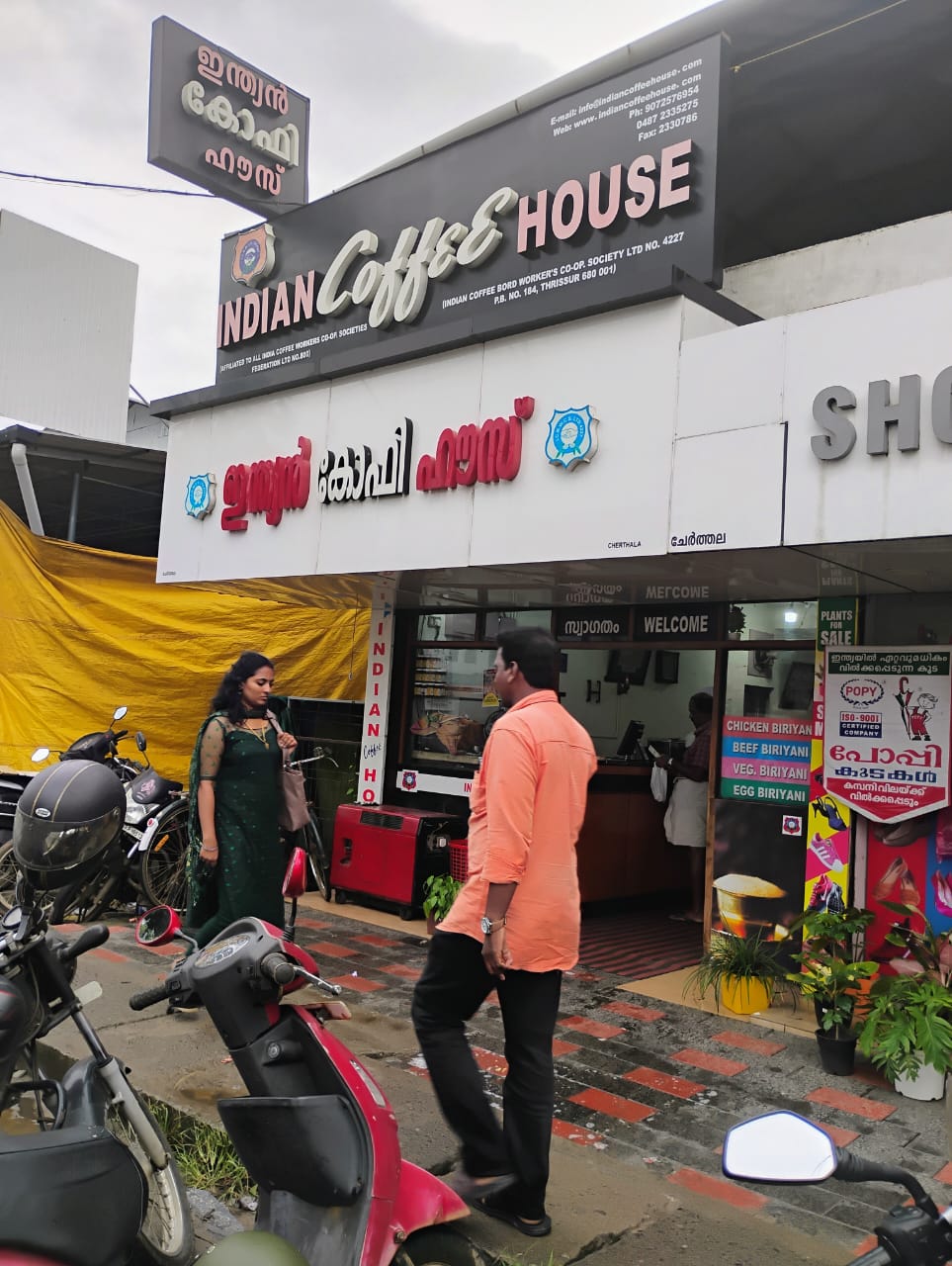
The Indian Coffee House also symbolizes the resilience and collective spirit of its workers, who successfully transformed the establishment into a cooperative movement. This cooperative model not only preserved jobs but also empowered workers, giving them a sense of ownership and pride in their work. The success of this model is a testament to the strength of community and collaboration, showcasing how collective efforts can create sustainable and enduring institutions.
In essence, the Indian Coffee House is a living museum of India's socio-cultural evolution. It embodies the spirit of a nation that values its heritage while continuously adapting to changing times. For those who visit, it offers a unique opportunity to experience a slice of history, engage in vibrant discussions, and enjoy the simple pleasure of a well-brewed cup of coffee.
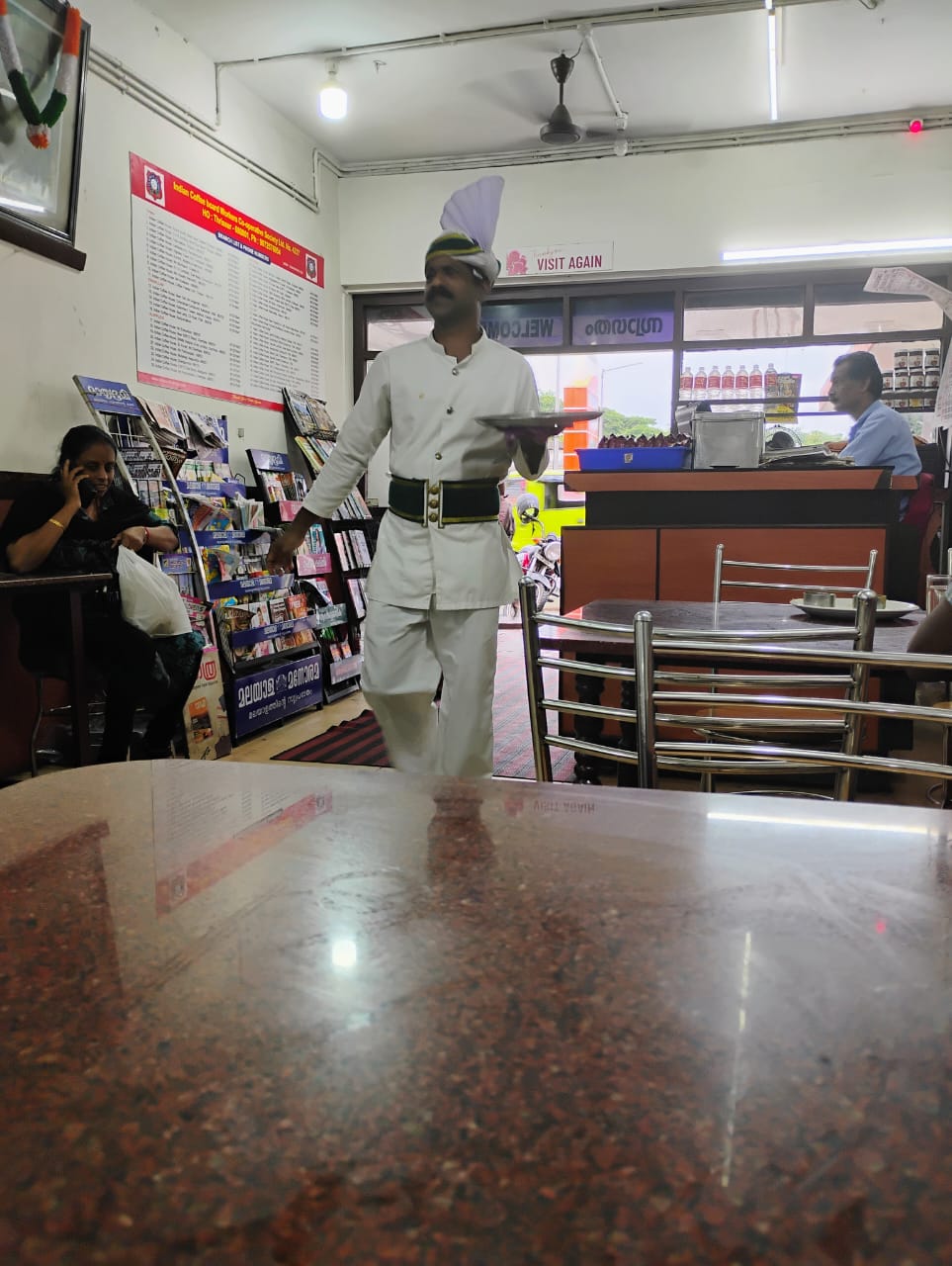
Do you want to absorb the heritage ambience of the iconic Indian Coffee House? Join our city tour and food walk in Cherthala for an unforgettable journey into the past. Relive history with traditionally served filter coffee and masala dosa in an environment steeped in nostalgia. As you sip on aromatic coffee and savor delicious South Indian cuisine, you'll be transported back in time, experiencing the charm and culture that have made Indian Coffee House a beloved institution. Don't miss this opportunity to immerse yourself in the rich heritage of Kerala's culinary and social history.


The Story of Wonderwerk: From Concept to Creation
How tapioca became Kerala's symbol of food sustainability
Beyond Karimeen Pollichathu: 5 Traditional Spicy Fish Dishes from the Kumarakom Backwaters of Kerala That Celebrate The Culinary Diversity of Kerala